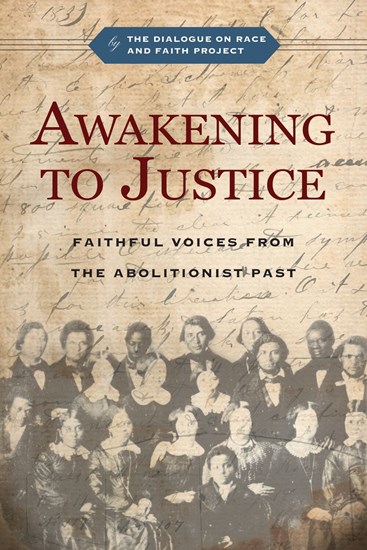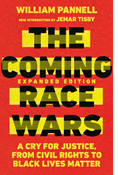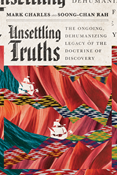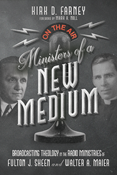
|
Awakening to Justice
paperback
|
- Length: 240 pages
- Dimensions: 6 × 9 in
- Published: March 26, 2024
- Imprint: IVP Academic
- Item Code: A0918
- ISBN: 9781514009185
-
Other Retailers:
Amazon*
*affiliate partner
-
ebook
"O where are the sympathies of Christians for the slave and where are their exertions for their liberation? . . . It seems as if the church were asleep."
David Ingraham, 1839
In 2015, the historian Chris Momany helped discover a manuscript that had been forgotten in a storage closet at Adrian College in Michigan. He identified it as the journal of a nineteenth-century Christian abolitionist and missionary, David Ingraham. As Momany and a fellow historian Doug Strong pored over the diary, they realized that studying this document could open new conversations for twenty-first-century Christians to address the reality of racism today. They invited a multiracial team of fourteen scholars to join in, thus launching the Dialogue on Race and Faith Project.
Awakening to Justice presents the groundbreaking work of these scholars. In addition to reflecting on Ingraham's journal, chapters also explore the life and writings of two of Ingraham's Black colleagues, James Bradley and Nancy Prince. Appendixes feature writings by all three abolitionists so readers can engage the primary sources directly.
Through considering connections between the revivalist, holiness, and abolitionist movements; the experiences of enslaved and freed people; abolitionists' spiritual practices; various tactics used by abolitionists; and other themes, the authors offer insight and hope for Christians concerned about racial justice. They highlight how Christians associated with Charles Finney's style of revivalism formed intentional, countercultural communities such as Oberlin College to be exemplars of interracial cooperation and equality.
Christians have all too often compromised with racism throughout history, but that’s not the whole story. Hearing the prophetic witness of revivalist social justice efforts in the nineteenth century can provide a fresh approach to today's conversations about race and faith in the church.
"Awakening to Justice is an account of an evangelical reckoning with racism that is holistic, complex, and sustained over time. It includes prominent and marginalized voices, celebrates progress and laments failure, and portrays a prolonged and countercultural struggle with the evil of human slavery. Because the narratives are honest, they are also hopeful. In moving deeply and truthfully into a past we are often tempted to avoid, the members of the dialogue model what it might mean to faithfully remember a past that is too much with us."
"Awakening to Justice offers profound insights and issues a compelling call to the church, urging active participation in the work of racial justice. This invitation encompasses the entirety of humanity, transcending White and Black perspectives, making it a relevant message for every church community. Together, your congregation will embark on a journey of meaningful engagement with all individuals, fostering unity and a love for neighbors that will radiate Christ's transformative power in our world today."
"Sometimes God speaks to contemporary troubles with an answer given long ago. In an age when too many are afraid to tell the whole story of our history, this book invites the reader to understand that none of our contemporary issues of race are new. Indeed, in the example of Ingraham and his interracial circle, we can find a Christian model for moving forward toward racial justice and integrated congregational worship in our own time. Although Ingraham and his friends failed in their attempts to create an enduring community of racial equity, their efforts, their vision, and even their mistakes can be instructive to us. From one age of tragic polarization in the nineteenth century, Ingraham's story is one answer to our own partisan divisions today. This is a much-needed story of vision, of community, and of hope, and as usual, God has given it to us right on time!"
"Every once in a while—if we are lucky—we come face-to-face with history. These encounters with the past anchor us, pushing us to re-imagine our present and re-vision our future. This volume is just such an encounter—vividly taking us to a long ago past that has, perhaps without us even knowing, set the course for our present, raising knotty and uncomfortable questions along the way. We come away enlightened, encouraged, and emboldened. And our faith is challenged as we are pushed to wrestle with the evergreen questions of how to live and do and be justice."
"In chronicling the discursive and relational space that nineteenth-century revivalist abolitionists provided for reckonings with race, contributors to this timely volume sternly but subtly suggest pathways to gospel-mandated advocacy and reconciliation to the contemporary Christian ecclesia."
"Combating racism and strengthening the beloved community are urgent tasks for all Christians, especially those of us in the United States. The authors of Awakening to Justice have rendered us a great service by revisiting and analyzing key voices from our past. Working with the newly discovered journal of abolitionist David Ingraham and accounts written by his African American colleagues James Bradley and Nancy Prince, these scholars have provided us with a helpful resource for addressing issues of race and faith in our time. It is well worth reading."
"The concept and praxis of abolition is all the rage in Black studies. Here a multiracial group of Christian scholars suggests this term of Black critical thought enacts a faithful form of Christianity among these mid-nineteenth-century, interracial disciples, aptly named revivalist abolitionists. Offering no easy or straightforward recovery of this moment of interruption, these scholars carefully articulate the promise of a critical history of antislavery social life as Christian practice—in anticipation of a world of racialization undone."
"Brace yourself for discovery and prophetic hope! For those who think the fight for racial justice is a new one or those whose energy is flagging in the face of systemic racism, you will find solidarity in these courageous voices from the past. With surprising clarity, the witnesses in Awakening to Justice give us a through line to join the struggle for this holy work yet unrealized."
"Awakening to Justice is a powerful, collaborative effort from a diverse group of scholars who call God's people to honestly learn from the past so we can address our complex, systemic inequities today. I highly recommend this book that gives hope to all people who want to build a future of racial justice together."
"In the tumultuous present of race in America, these distinguished scholars provide a welcome window on the past stories of known and little-known abolitionists. These riveting accounts showing the deep connection of Christian faith and racial justice are sure to find a wide audience."
CONTENTS
Acknowledgments
Prologue—Jemar Tisby
Introduction: Waking a Sleeping Church
1. "How Long, O Lord?" A Narrative of Three Christian Abolitionists—Christopher P. Momany
2. "Soul-Destroyers Tore Me from My Mother’s Arms": West African Resistance to the Slave Trade—Sègbégnon Mathieu Gnonhossou
3. "Liberty, Liberty!": Witnesses to a More Racially Equitable Future—David D. Daniels III
4. "Reviving Our Spiritual Strength": Worship, Justice, and Salvation—R. Matthew Sigler
5. "This Holy Cause": Revivalist Theology and Justice Advocacy—Douglas M. Strong
6. "Purified Through Fire": The Piety and Power of Female Affliction—Diane Leclerc
7. "Organized Efforts to Educate and Elevate": Charitable Aid among Christian Abolitionists—Esther Chung-Kim
8. "Made Welcome as Equals": The Oberlin Experiment in Interracial Christian Community—Albert G. Miller
Conclusion: A Prophetic Past—Estrelda Y. Alexander
Appendix A: Timeline of Significant Dates in this Historical Narrative
Appendix B: James Bradley, "Brief Account of an Emancipated Slave Written by Himself, at the Request of the Editor," 1834
Appendix C: Excerpts from the Journal of David S. Ingraham, 1839-1841
Appendix D: David Ingraham, "Capture of the Ulysses—Sufferings of the Slaves," 1840
Appendix E: Excerpts from The Narrative of Nancy Prince, 1853
List of Authors
Image Credits
Index






